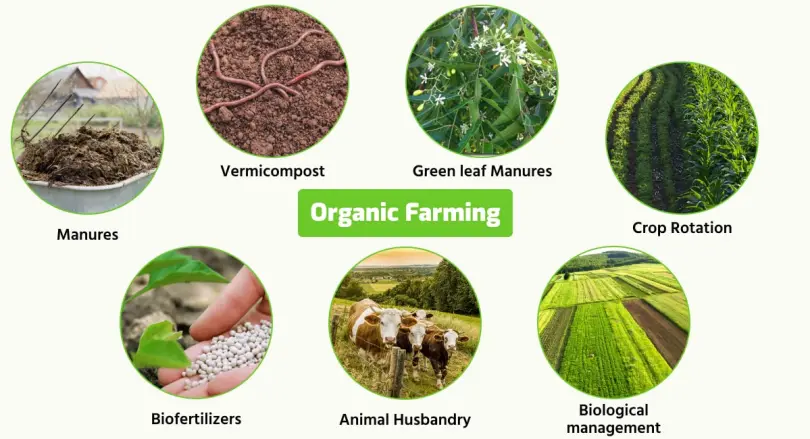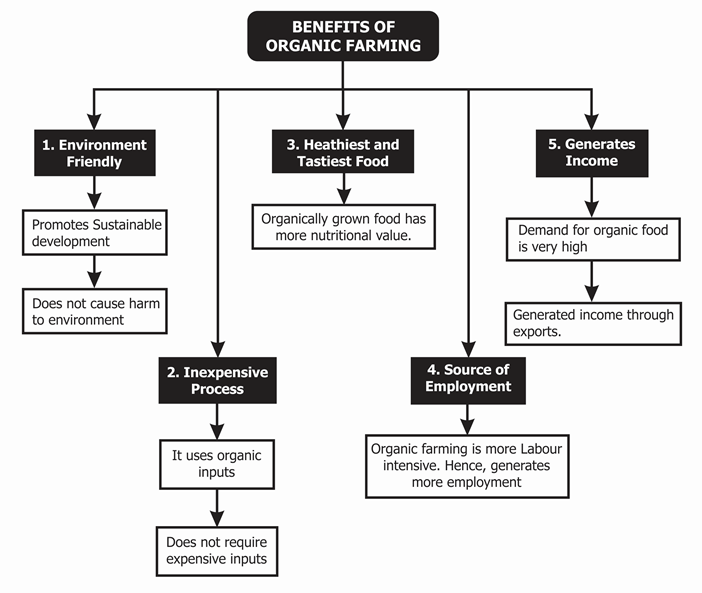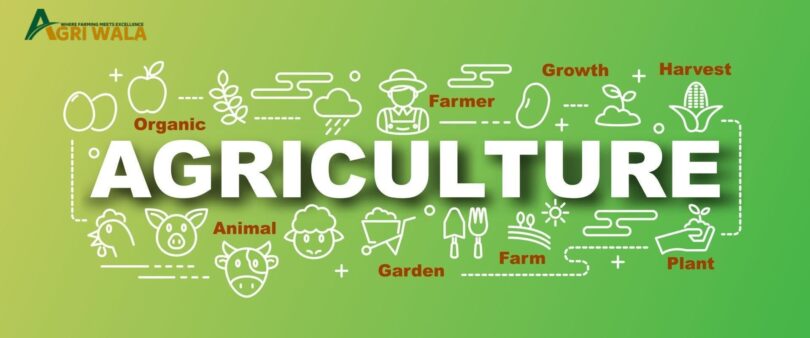What is Organic Farming ?
Organic farming is a method of agriculture that relies on natural processes and inputs rather than synthetic chemicals like pesticides, herbicides, and fertilizers. It emphasizes the use of organic matter (such as compost and manure), crop rotation, biological pest control, and biodiversity to maintain soil health and ecological balance.
Organic farming can create a sustainable livelihood for farmers by fostering economic, environmental, and social benefits that contribute to long-term success. Here’s how it does so:
1. Higher Market Value and Premium Pricing
- Increased demand: Consumers are increasingly seeking organic products, driving higher demand.
- Premium pricing: Organic products often command higher prices due to their perceived health benefits and environmentally friendly production methods. This allows farmers to earn more for the same amount of produce compared to conventional farming.
2. Cost Savings on Inputs
- Reduced chemical costs: Organic farming eliminates the need for costly synthetic fertilizers, pesticides, and herbicides.
- Self-sustaining inputs: Organic methods rely on natural inputs like compost, manure, and biological pest control, which can often be sourced from the farm itself, reducing dependence on external inputs.
3. Soil Health and Long-Term Productivity
- Enhanced soil fertility: Organic farming improves soil structure, nutrient content, and water retention through practices like crop rotation, cover cropping, and composting.
- Sustained yields: Healthier soils produce more resilient crops that can withstand droughts, pests, and diseases, leading to stable or increasing yields over time, ensuring a steady income.
4. Diversified Income Sources
- Crop diversity: Organic farming encourages biodiversity, often leading to the growth of multiple crops or livestock. This reduces dependence on a single product and spreads economic risk.
- Value-added products: Farmers can also engage in the production of organic processed goods (e.g., organic jams, juices, etc.), adding another stream of income.
5. Environmental Sustainability
- Preservation of natural resources: Organic farming conserves water, improves soil health, and enhances biodiversity, creating a more sustainable environment that supports long-term farming.
- Reduced chemical exposure: Farmers and their communities are less exposed to harmful chemicals, reducing health costs and improving overall well-being, which can lead to greater productivity.
6. Access to Niche Markets and Support Programs
- Export opportunities: Organic products are often sought after in international markets, providing farmers access to higher-paying export markets.
- Government support: Many governments and organizations offer incentives, certifications, and financial support for organic farmers, helping them transition and maintain organic practices.
7. Resilience to Climate Change
- Natural resource conservation: Organic farming improves the farm’s resilience to climate extremes like droughts and floods, due to healthier soils and ecosystems.
- Sustainable farming practices: Techniques like crop rotation, polyculture, and agroforestry used in organic farming promote biodiversity and improve adaptability to changing climates.
8. Stronger Community and Farmer Networks
- Collaborative farming: Organic farmers often form cooperatives to share knowledge, resources, and market access, building stronger social networks that support long-term livelihoods.
- Education and skills development: Organic farming requires a deep understanding of natural processes, which can enhance farmers’ knowledge base and innovation capacity, making them better prepared to adapt to challenges.

By focusing on economic sustainability (through higher prices and reduced costs), environmental conservation, and social well-being, organic farming can provide farmers with a more secure and resilient livelihood.
Key Practices of Organic Farming:
- Use of Organic Inputs: Natural fertilizers (compost, manure) and pest control methods (biological predators, organic pesticides).
- Crop Rotation: Planting different crops in a sequence to enhance soil fertility and reduce the buildup of pests and diseases.
- Biodiversity: Cultivating a variety of plants and crops, which supports ecological balance and enhances soil fertility.
- No GMOs (Genetically Modified Organisms): Organic farming avoids the use of genetically modified seeds and organisms.
- Soil Health Focus: Emphasis on soil organic matter to retain nutrients and moisture, improving long-term soil health.
Benefits of Organic Farming for Farmers:

- Improved Soil Fertility: By relying on organic matter, farmers improve soil health, leading to better water retention and nutrient availability, which can increase crop yields over time.
- Reduced Input Costs: Organic farmers avoid buying expensive synthetic pesticides and fertilizers, lowering production costs.
- Market Premiums: Organic products often fetch higher prices in the market due to increasing consumer demand for eco-friendly and healthy food options.
- Environmental Sustainability: By reducing the use of harmful chemicals, organic farming protects water sources and biodiversity, contributing to long-term agricultural sustainability.
- Health Benefits: Reduced chemical exposure benefits farmers and their communities by lowering health risks.
- Resilience to Climate Change: Organic farming systems with healthy soils tend to be more resilient to extreme weather, including droughts and floods.





Leave a Comment